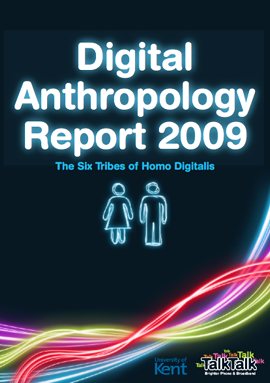What’s the point of science if it’s not publicly accessible? Two weeks ago, the first global Open Access Week was organized. Masters’ student in anthropology Karstein Noremark has written a report for antropologi.info about the Open Access Week at Victoria University of Wellington.
In his opinion, especially anthropologists should be interested in making research available online. But he did not see any anthropologists at the Open Access Week seminars. There was a general lack of interest among academics. Many of the attendants were library staff. He hopes more students will get involved in the Open Access movement – as future researchers, as end-users, and as a group that is in a unique position to advocate for the ‘rights to research’ of students in poorer countries.
Here is his report:
A small report from Open Access Week at Victoria University of Wellington
(including a critical note on anthropological engagement)
By Karstein Noremark – karsteinn (AT) gmail.com –
Victoria was the only university in New Zealand to (officially) celebrate Open Access Week, and the five days at Victoria covered an impressive broad range of subjects: workshops on Creative Commons licences and Open Access publishing, a web conference on Open Education with Wayne Mackintosh from WikiEducator, an institutional repositories roundtable, and, on top of this, a seminar on “Net Neutrality.” (More information on the various seminars can be found here).
The person behind most of the organising was Sigi Jöttkandt from Open Humanities Press. During the week, she also introduced the attendants to an open source publishing tool that can be used to create Open Access journals. An informative seminar on copyright and licences provided an introduction to various legal tools for Open Access, and in the spirit of the week, this seminar is also available as a webcast (get ogg player).
Still a room for professional publishers?
One of the more exciting topics during the week was the workshop on Open Access publishing. Interestingly enough, a representative from the ‘business’ – Fergus Barrowman from Victoria University Press – had agreed to sit in the panel. Barrowman gave a face to Open Access publishing that is often overlooked: the implication for publishers who are interested in Open Access, but who are not sure how to get involved. He gave an account of the realities that publishers face, the cost of publishing, the problems with ‘unprofitable’ Open Access models for publishing, and all the work that actually goes in to the publication of a text. As he told us, “we also like to get paid for our labour.”
Although Barrowman saw Open Access was “the right way forward,” he also told us that publishers would not embrace Open Access until a profitable business model was in place. Barrowman’s speech spurred a discussion around the themes of publishing and self-publishing, especially on the ‘craft’ side of publishing and how this knowledge could become lost in a transition to online publishing and Open Access. Most of the attendants agreed that there should still be room for professional publishers, but that more individual freedom was needed, especially for academics, whose access to specific articles might be crucial for their work.
All in all, the seminar was interesting, and had an edge to it, given that there were different stakeholders present (all honour to Barrowman for attending such a conference, and showing that he had given consideration to Open Access). I for one, who had come to the seminar with ideas about ‘evil publishers’ left with a more nuanced view on the publishing business – still thinking that a change was needed, but also with a feeling that ‘change’ does not just mean replacing ‘the old’ altogether. Of course, a webcast is also available for this seminar.
Anthropological absence
There did not seem to be any anthropologists at the seminars (although, there could have been some – I am not a student here myself). In fact, there seemed to be a general lack of academic interest altogether; many of the attendants were library staff, worked in digital repositories, or (like me) had an interest in Open Access as a ‘phenomenon’.
An example might reflect the awareness of some anthropologists of Open Access.
Roughly one week before the OA Week, I attended an anthropology student seminar held at Victoria. In the seminar, one of the lecturers from the university talked about her experiences from an international anthropology conference, complaining about the ‘elitism’ that she saw in much of the discipline.
I felt like I should make a comment to her presentation, and asked if Open Access could not be a way for anthropology to overcome ‘elitist tendencies’, by making texts and research more publicly accessible. She did not seem to understand what I was talking about (I am not sure if she didn’t know about OA, or just didn’t have an opinion on the topic), and wandered off on a metaphorical detour before resuming her complaints of the seemingly unbridgable ‘gap’ between ideal and practice in anthropology.
I started to think: which discipline should have vested interests in promoting and understanding Open Access if not anthropology, whose practitioners are constantly drawing on other fields of study, complains about not getting their message through, and maintain linkages to a number of academics in poorer countries where access to high quality articles is, to put it mildly, limited. And yet, many anthropologists seem more content to focus on a critique of existing ‘knowledge systems’ rather than looking for promising alternatives to this situation.
A student movement?
Open Access has become associated with a student movement (at least in the USA), but where were the students here in New Zealand?
I am currently writing an article on Open Access for a Norwegian anthropology student magazine called Kula Kula, and comparing my experiences from New Zealand to those of Norway. It might seem as though a lack of student involvement is related to the degree of institutionalisation that Open Access has been subjected to in both countries.
In Norway, the Research Council has agreed to sign the Berlin Declaration, and the University of Bergen has followed up by trying to persuade their researchers to make articles available in online repositories and Open Access journals. Still, ‘recommendations’ might be a far cry from actual implementation (article in Norwegian / English translation by Google).
A ‘technical’ approach to Open Access seems to have taken over an initiative that might otherwise have come from students – as future researchers, as end-users, and as a group that is in a unique position to advocate for the ‘rights to research’ of students in poorer countries.
In fear of violating a “wait and see – and then possibly write about it” attitude that is often taken to Open Access, I would urge more students to get involved. And more of them should come from anthropology.
The Open Access Week website has a lot of information, including videos and webcasts, among others an interview with Mr. Open Access, Peter Suber from Open Access News:
[video:vimeo:7375512]SEE ALSO:
SSOAR – The first Social Science Open Access Repository is online
2006 – The Year of Open Access Anthropology?
For Open Access: “The pay-for-content model has never been successful”
antropologi.info survey: Six anthropologists on Anthropology and Internet
Kerim Friedman: Are anthropologists serious about sharing knowledge?

What's the point of science if it's not publicly accessible? Two weeks ago, the first global Open Access Week was organized. Masters' student in anthropology Karstein Noremark has written a report for antropologi.info about the Open Access Week at Victoria…




